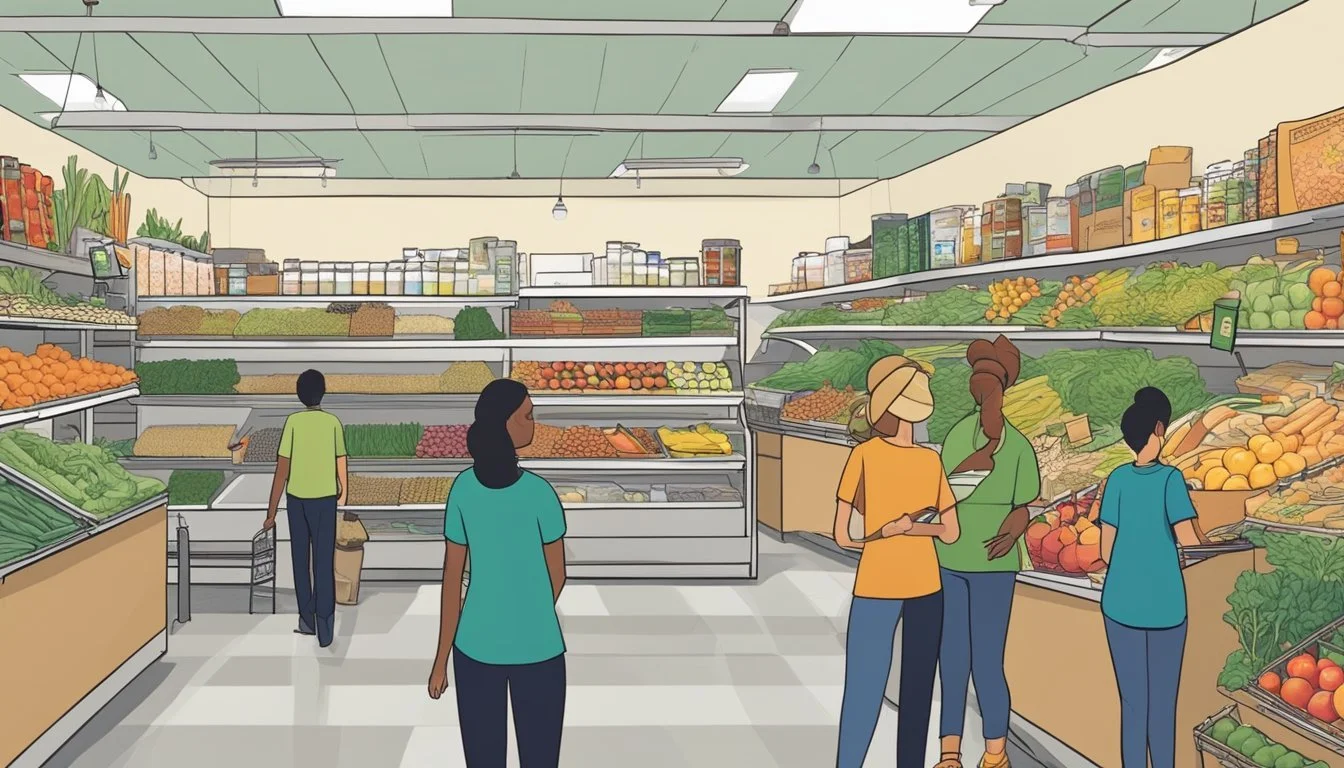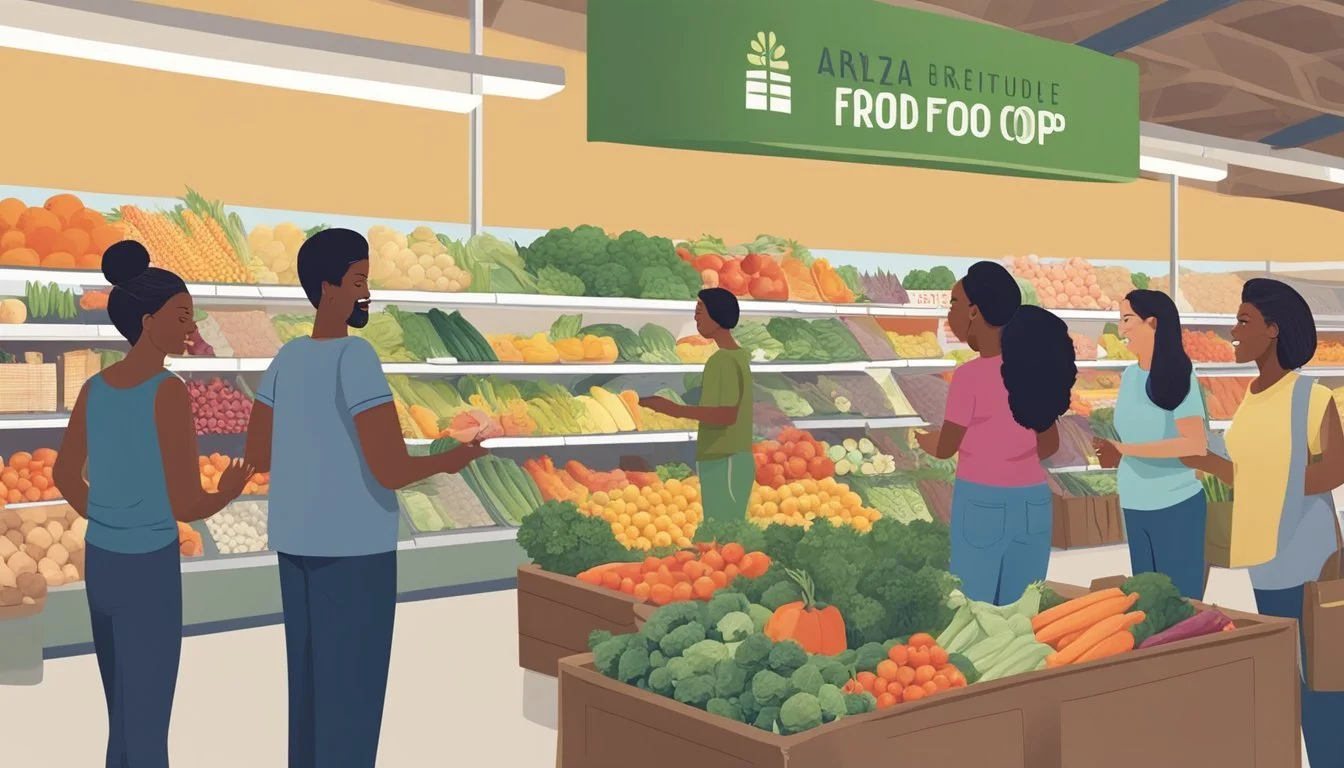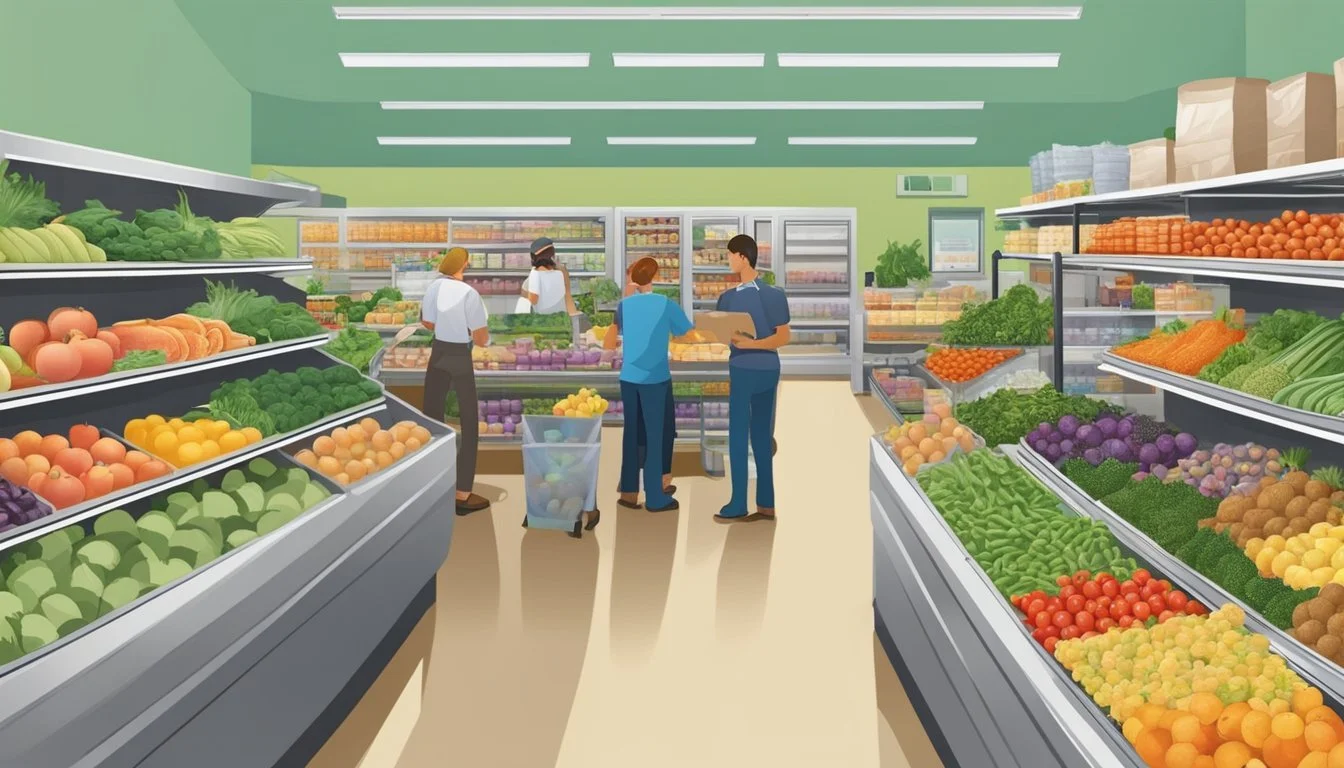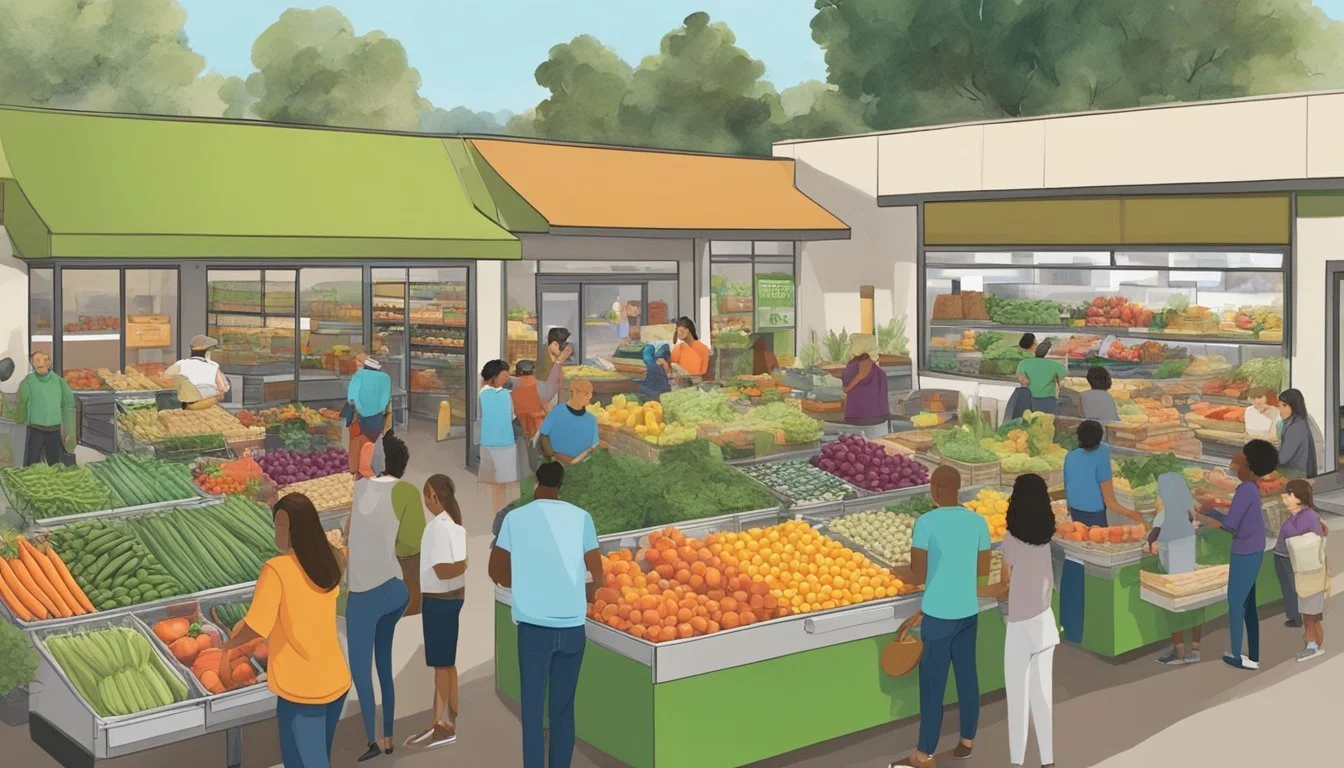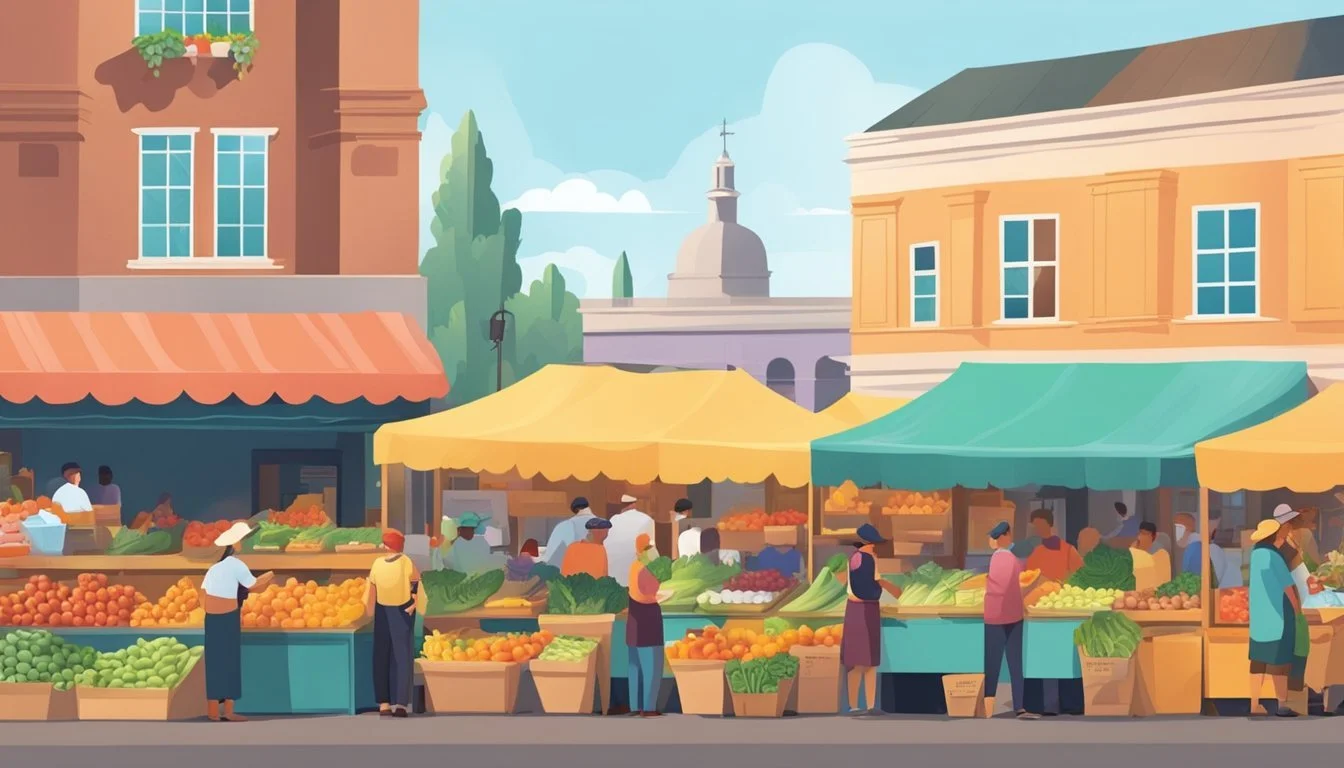Guide to Food Co-Ops in Visalia, CA
Your Source for Local and Organic Produce
Visalia, California, home to a vibrant community and a growing local food movement, offers a unique opportunity for small businesses and food enthusiasts alike with the presence of food co-ops. A food co-op, short for cooperative, operates on the principle of member-owned and governed businesses where everyone is welcome to shop. The model is built on a foundation of trust and community engagement, providing a space for local producers and consumers to connect.
The Visalia Kitchen Co-op, Visalia's only shared commissary kitchen, exemplifies this commitment to local food businesses by offering a fully certified space for both new and established entrepreneurs. This facility provides more than just a kitchen; it offers cold and dry storage space, start-up mentoring, and additional services such as assistance with social media and search engine optimization. Community-supported agriculture (CSA) programs and local farm stands in the area further strengthen the bond between growers and consumers in Visalia, helping to sustain the local economy and promote healthier food choices.
Understanding Food Co-Ops
Food cooperatives, or food co-ops, stand out as unique entities in the marketplace. They are member-owned and democratically controlled businesses that aim to serve their members' needs and often support local communities. Unlike conventional retail outlets that prioritize shareholder profits, a co-op's loyalty is to its members.
Membership in a food co-op typically involves purchasing a share, representing a financial stake and a commitment to the cooperative principles. Members may be customers, workers, producers, or a combination of these roles. Here, the members' voices are paramount, as they each have a vote in key decisions and play a critical role in governance.
As nonprofit organizations, food co-ops are driven by service rather than profit maximization. They reinvest earnings back into the cooperative or distribute them among the members based on patronage. The focus is on providing value to the members and ensuring that their collective resources contribute to local sustainability.
Table: Key Features of Food Co-Ops
Feature Description Member-Owned Owned by members who invest in shares and have a stake in the business. Democratically Controlled Each member has a vote and can participate in decision-making. Nonprofit Focus Prioritize service over profit, reinvesting in the co-op or sharing profits with members. Membership Benefits Members often enjoy discounts, special offers, and a say in product selection.
Food co-ops may also heavily emphasize the availability of high-quality and locally sourced products, educational initiatives, and a commitment to ethical and ecological responsibility. They nurture a sense of togetherness, as a shared aim binds their members to the health and welfare of their community.
Benefits of Joining a Food Co-Op
Joining a food co-op in Visalia, CA, offers a range of benefits, from economic perks to improved access to high-quality, healthy foods. They contribute significantly to local community enhancement while fostering a spirit of shared ownership and decision-making.
Economic Advantages
Savings for Members: Food co-ops often return profits back to their members in the form of rebates and reduced prices. Members experience savings, as co-ops seek not just to profit but to serve their members' best interests.
Supporting Local Economy: Money spent in a food co-op generally stays within the local community, increasing economic activity and supporting local farmers and producers.
Health and Quality
Access to High-Quality Foods: Co-ops prioritize stocking their shelves with organic and natural products. Members have access to an assortment of fresh, high-quality, and healthy food options.
Standards of Quality: With a community-oriented approach, co-ops ensure that high standards for food quality are maintained, often surpassing those found in conventional grocery stores.
Community Impact
Strengthening Community Ties: By its nature, a co-op builds a sense of community, as members often share similar values and goals, such as sustainability and fair labor practices.
Local Involvement and Support: Food co-ops provide a platform for members to directly impact their local food systems, supporting local producers and contributing to food accessibility improvements.
How to Become a Member
Becoming a member of a food co-op in Visalia, CA, involves a simple yet structured process. Interested individuals might start by filling out an application. This can typically be done in person at the co-op's customer service desk or at register areas. Additionally, many co-ops also offer an online application option for convenience.
The initial step requires an investment in shares, which is a common practice among co-ops to build equity and collective ownership. A one-time activation fee is also standard:
Initial Share Purchase: $10
Activation Fee: $5
Members are further encouraged to continue investing in the co-op to strengthen its financial base and support shared values of community and sustainability. Annual payments ensure that members remain in good standing:
Annual Share Investment: $20 (until reaching a set equity amount)
Most co-ops have a maximum equity investment capped at a certain amount, such as $300. Once this maximum is reached, no further annual share investments are necessary. Additionally, these investments are typically refundable, should a member choose to end their relationship with the co-op.
Food co-ops often offer a variety of local, healthy, and sustainable products, and membership might come with the benefit of discounts or special offers on these items. To attend to diverse household needs, some co-ops also provide options for family or household memberships.
The age requirement for membership can vary, but individuals are normally expected to be of legal age to enter into a contract. Before joining, prospective members should inquire about any specific age or household requirements that may apply to their circumstances.
Member-Owner Responsibilities
In food cooperatives, member-owners carry essential duties that support the governance and operation of the co-op. They play a significant role in the co-op's sustainability and growth by fulfilling specific responsibilities.
Participation in Governance
Member-owners engage in the co-op’s governance by exercising their voting rights in elections of the Board of Directors. They influence vital decisions regarding the co-op’s future and oversee the board’s adherence to the cooperative's mission and values. Regular attendance at meetings and participation in discussions are critical services member-owners provide to ensure transparent and democratic operations.
Volunteering and Involvement
The health of a food co-op often depends on the voluntary services provided by its member-owners. They are encouraged to contribute their time and skills, which can range from operational tasks to educational outreach. Involvement goes beyond mere participation, as it includes taking on leadership roles, contributing to committee work, and providing essential services that keep the co-op functioning effectively.
Local Food Co-Op Operations
Food co-ops in Visalia, CA, prioritize connecting consumers with high-quality local produce and products through a structured system of sourcing and distribution. These co-ops function to bring the community closer to their food sources, facilitating benefits for both local farmers and the members they serve.
Product Sourcing and Distribution
Food co-ops in Visalia operate with a commitment to local farmers, aiming to provide fresh, sustainable produce to their members. Localharvest highlights that participating co-ops typically engage in direct sourcing from nearby farms, ensuring a supply of organic and responsibly grown fruits and vegetables. They maintain a network of distribution that supports small producers and reduces unnecessary waste and environmental impact.
Distribution practices include:
Scheduled deliveries from farms, ensuring fresh produce is available.
Wholesale food ordering that benefits both producers and co-op members.
Retail and Services
At the retail level, Visalia's food co-ops offer a range of services to ensure member satisfaction and operational efficiency. The Visalia Kitchen Co-op, for instance, showcases a shared commissary kitchen space where small food businesses can produce their goods. Members often have access to:
Dry and cold storage for product preservation.
Mentoring and guidance for food-related startups.
Social media and SEO services to help businesses reach a wider audience.
The co-ops often feature in-store and online retail options, catering to various member needs and improving the availability of their product range.
Educational Resources and Events
In Visalia, the food co-op community thrives on education and communal events that bolster the relationship between local farmers, culinary enthusiasts, and the general public. The Visalia Kitchen Co-op is exemplary in providing resources for education, particularly for new food businesses. They provide start-up mentoring and guidance, which includes aspects of cooking and managing a food-related business.
Key Educational Activities:
Workshops: Regularly scheduled events aimed at improving culinary skills and business acumen.
Mentoring Sessions: Hands-on guidance sessions for entrepreneurs.
Events that Foster Relationships:
Meet-and-Greets with Local Farmers: These events encourage collaborations and provide an understanding of where the food comes from.
Community Cooking Classes: Classes for all skill levels that promote healthy eating and cooking techniques.
Resources Available:
Access to fully stocked kitchens for experiential learning.
Cold and dry storage spaces for understanding food preservation.
Knowledge-sharing about wholesale food ordering and delivery systems.
The FoodLink for Tulare County also plays a pivotal role by providing nutritional education and striving for food system change. This entity often hosts events to address food insecurity and hunger in the region.
Notable Community Events:
Neighborhood Market at Seven Oaks is open specific days for pantry services.
Distribution of meals which emphasizes the importance of healthy eating.
By engaging in these educational resources and events, participants in the Visalia food co-op landscape are better equipped to foster sustainable relationships with local food producers and contribute positively to the community’s food systems.
Economic Principles of Food Co-Ops
Food cooperatives combine economic efficiency with community values, balancing profitability with the interests of their members and the local area.
Managing Finances and Profits
Food co-ops manage their finances by adhering to cooperative values, with an emphasis on economic participation by members. This participation, often through the purchase of shares, secures capital for the co-op and supports equitable distribution of profits. Co-ops prioritize returning profits to members based on use rather than merely on the capital invested, reflecting their democratic ethos.
The financial strategy also taps into economies of scale, allowing the purchase of supplies in larger quantities often at discounted rates. This results in cost savings that the co-op can pass on to its members or reinvest in the business to boost its financial sustainability.
Market Influence and Bargaining Power
A pivotal component of a food co-op's economic principle is its market power. Unlike traditional businesses, whose goal is to maximize profits for a few, co-ops aim to serve the best interests of their members and the community. By pooling resources together, they increase their bargaining power with suppliers, securing better terms and lower prices—benefits that are transmitted to their consumers.
This collective bargaining power yields more than just quantity discounts; it allows co-ops to have a voice in the market, influencing the quality and sources of goods they sell. Being a part of a co-op network, such as National Co+op Grocers, multiplies this influence, thereby strengthening their position to advocate for healthier, more sustainable, and locally sourced products.
Frequently Asked Questions
What is the membership structure for Food Co-Ops in Visalia?
Members usually buy into the organization, typically through a one-time fee. This membership allows them to have a say in the operations and partake in benefits such as discounts.
What are the benefits of joining a Food Co-Op?
Economical: Bulk purchasing and fewer intermediaries can reduce costs.
Quality and Local Focus: Fresh, locally-produced goods tend to be a priority.
Community-Driven: Members have a say in the co-op's direction, supporting local economy.
How do Food Co-Ops operate in Visalia?
Food Co-Ops are often community-oriented, focusing on sustainable practices, supporting local producers, and offering fair pricing. They may provide mentoring and start-up guidance for small food businesses.
What types of products can one find at a Food Co-Op?
Products Range:
Local produce
Organic and non-GMO items
Artisanal foods
Specialty diets (gluten-free, vegan, etc.)
How does a Food Co-Op support the local economy?
By prioritizing the purchase of goods from local suppliers — for example, Great Basin Food Co-op spends $300,000 annually with local suppliers — co-ops circulate money within the community, bolstering local agriculture and small businesses.
Comparing Food Co-Ops with Other Buying Models
In Visalia, CA, consumers have multiple options to source their groceries, each with distinctive models of operation and community impact. These include food co-ops, buying clubs, and traditional grocery stores.
Food Co-Ops vs. Buying Clubs
Food co-ops function as retail outlets owned and democratically governed by their members. They prioritize local and organic products and allocate a significant portion of their revenue to local wages and benefits. Furthermore, food co-ops typically distribute profits back to their members via dividends in profitable years.
On the other hand, buying clubs are informal groups where individuals combine their purchasing power to buy in bulk directly from suppliers. While buying clubs offer cost savings on bulk orders, they usually lack a brick-and-mortar presence and do not provide the same level of community engagement or profit-sharing as food co-ops.
Aspect Food Co-Ops Buying Clubs Ownership Member-owned and operated Informal group of buyers Business Model Democratic governance, profit-sharing Bulk purchasing without traditional retail space Community Engagement High, with community events and education sessions Typically lower, focused on group purchases Product Focus Often local and organic options Varies according to group requirements
Food Co-Ops vs. Grocery Stores
Grocery stores are either corporate-owned or part of larger chains and focus on providing a wide range of products, including commodity items, to a broad customer base. They operate on economies of scale to keep prices competitive, but local economic contributions may be less than those of a food co-op.
Food co-ops distinguish themselves by being member-owned and placing a high value on local products, which supports the local economy, particularly local farmers and producers. They engage customers through democratic participation and are more likely to reinvest profits into the local community.
Aspect Food Co-Ops Grocery Stores Ownership Member-owned and operated Corporate-owned or part of a chain Local Impact High, supports local suppliers and economy Variable, often less support for local suppliers Product Selection Curated, often focuses on organic and local goods Extensive, includes national and international brands Pricing May be higher due to quality and sourcing Competitive, benefits from economies of scale
Both food co-ops and grocery stores provide essential supplies, but the community's choice will differ based on their values, desired products, and the importance they place on local economic contributions. LocalHarvest is an excellent resource for finding more information on local food co-ops and buying clubs.
Challenges and Considerations
When exploring the landscape of food co-ops in Visalia, one must navigate a series of challenges and considerations to ensure the establishment and growth of a successful cooperative food venture.
Budget Constraints: Initial funding and financial planning are crucial. Co-ops typically require substantial upfront capital to cover costs such as securing a space, outfitting a kitchen with necessary equipment, and stocking up on inventory. Also, continued financial health is essential to maintain operation, making budgeting a high priority.
Product Sourcing: The sourcing of products such as meat and dairy products poses regulatory and logistical challenges. Co-ops often emphasize organic and locally sourced items, which can be more expensive and difficult to consistently supply.
Meat: Must meet health codes and quality standards, potentially limiting suppliers.
Dairy Products: Require proper refrigeration and frequent restocking to ensure freshness.
Market Competition: They must remain competitive in a market saturated with larger grocery chains. Balancing quality, variety, and affordability is key to attracting and retaining customers.
Educational Efforts: Co-ops thrive on member participation and a well-informed customer base. Offering resources and guidance on cooperative principles and benefits is necessary for long-term success.
Community Engagement: Building and sustaining a cooperative requires significant effort in community engagement to build trust and encourage local support.
By addressing these factors, food co-ops in Visalia can establish a foundation for a robust, community-centric business model.
Future of Food Co-Ops in Visalia
Food cooperatives in Visalia, California are poised for growth, reflecting a trend where communities increasingly support locally sourced and environmentally responsible food options. As awareness around sustainable practices rises, Visalians show a keen interest in the regenerative agriculture methods employed by food co-ops.
In Visalia, the potential for food co-ops is significant. They could present important employment opportunities as they expand. Typically structured as nonprofits, these co-ops prioritize fair wages and community engagement. They often provide a more personal shopping experience and a chance for employees to work in organizations where their contributions are directly linked to the cooperative's success.
Progressive agricultural trends and consumer preferences indicate that food co-ops in Visalia may adopt cutting-edge practices that are beneficial both to our planet and the local economy. Here are some key points outlining the probable future of food co-ops in this region:
Sustainable Growth: Integration of organic and regenerative farming practices.
Community Support: Strengthening ties through educational outreach and partnerships.
Employee Participation: Enhanced roles for employees who contribute to co-op development.
The trajectory for food co-ops in Visalia is optimistic. As the community continues to back environmentally conscious initiatives and local businesses, Visalia's co-ops are likely to become more integral to the city’s social and economic fabric, promoting their mission of providing access to healthy, sustainable food while contributing to the local economy.




